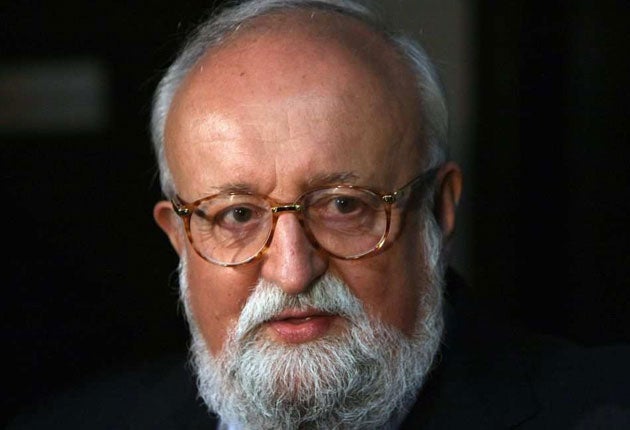St Luke Passion, Cathedral, Canterbury

Half a century ago, Krzysztof Penderecki saw his St Luke Passion travel the world as an instant sensation. It was that rare phenomenon, an avant-garde work on a grand scale that surpassed its difficulties of performance and moved large audiences. Then, it mysteriously disappeared. Saturday's revival by the Sounds New festival was the first in Britain for nearly 30 years. Bringing in a ready-prepared performance by top Polish musicians with the composer conducting, it was the culmination of this year's Polish Connections theme and, with the cathedral nave packed out, destined to put a previously local festival on the national map. But would it, on a musical level, make lightning strike again?
Penderecki has moved on, writing numerous religious works in a more traditionally rooted language. There was a suspicion that the spectacular contemporary elements of his early pieces had been a sensationalist overlay. Put to the test, however, the Passion didn't come up that way. Its unsettling mix of slow, sustained blocks of sound and rapid dramatic pace, executed in strident colours at extremes of loudness and softness and a continuous high level of intensity, came up fresh as a risky but successful bundle of paradoxes that the composer simply never tried to repeat.
Even in the booming cathedral acoustic, which turned dense clusters of organ pedals, heavy brass and choral basses into pitchless rumbles, the impact was consistently thrilling and the narrative gripping – this despite the use of Latin in texts only partly familiar, adding psalms and other liturgical sources to the gospel crucifixion story. Boris Carmeli's resplendent and floridly Italianate projection of the reciter's role helped. So did a musical delivery more polished than of old, with three confident choirs raked up steeply, the National Polish Radio Symphony Orchestra largely invisible below them but playing with bite and passion, and bold vocal solos from Adam Kruszewski, Piotr Nowacki and Iwona Hossa.
Like Berlioz's big choral works or Verdi's Requiem, it has so much theatre that it could almost be opera, except that it awakens your imagination so fully that it is already complete in itself. It really should do the rounds again, if there's anyone else who could learn it to the exceptional standard that Canterbury experienced.
Subscribe to Independent Premium to bookmark this article
Want to bookmark your favourite articles and stories to read or reference later? Start your Independent Premium subscription today.

Join our commenting forum
Join thought-provoking conversations, follow other Independent readers and see their replies